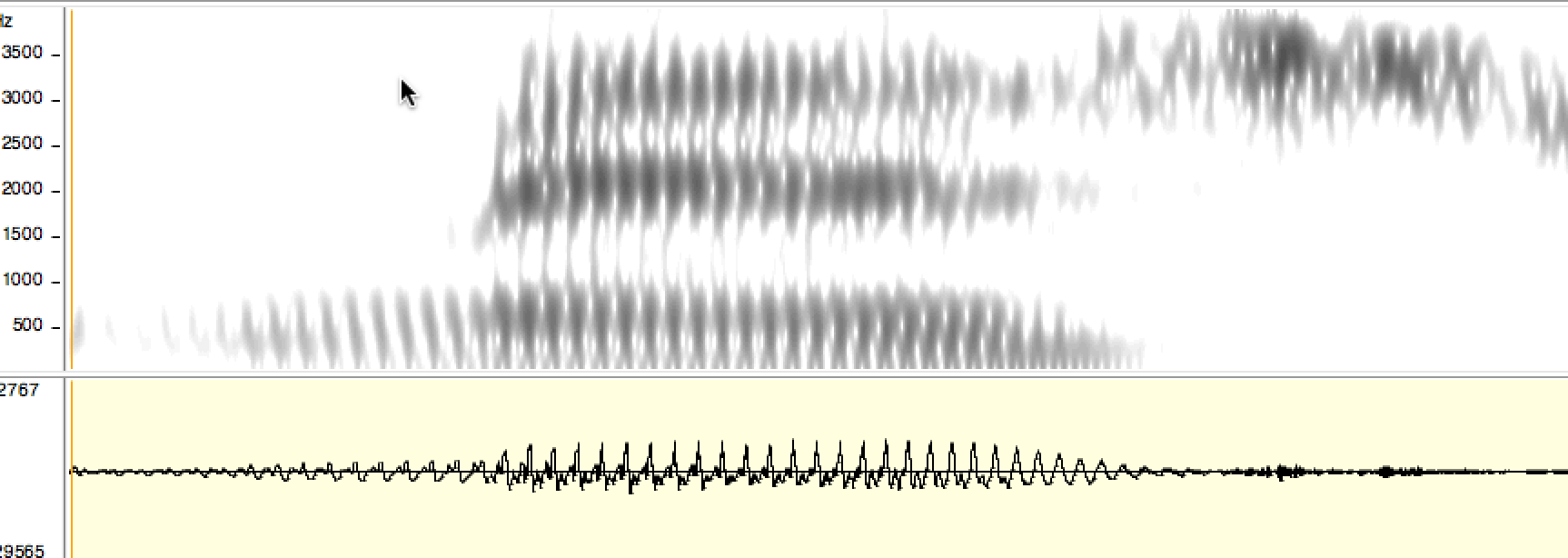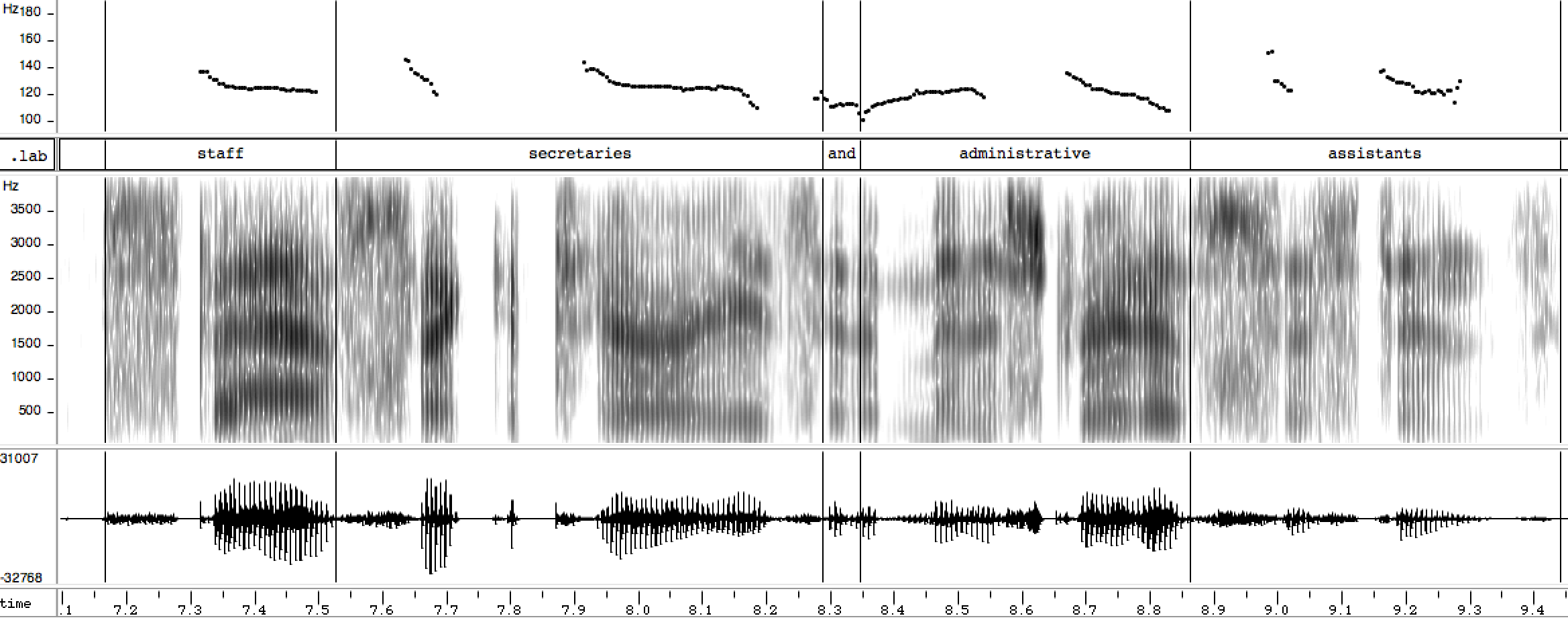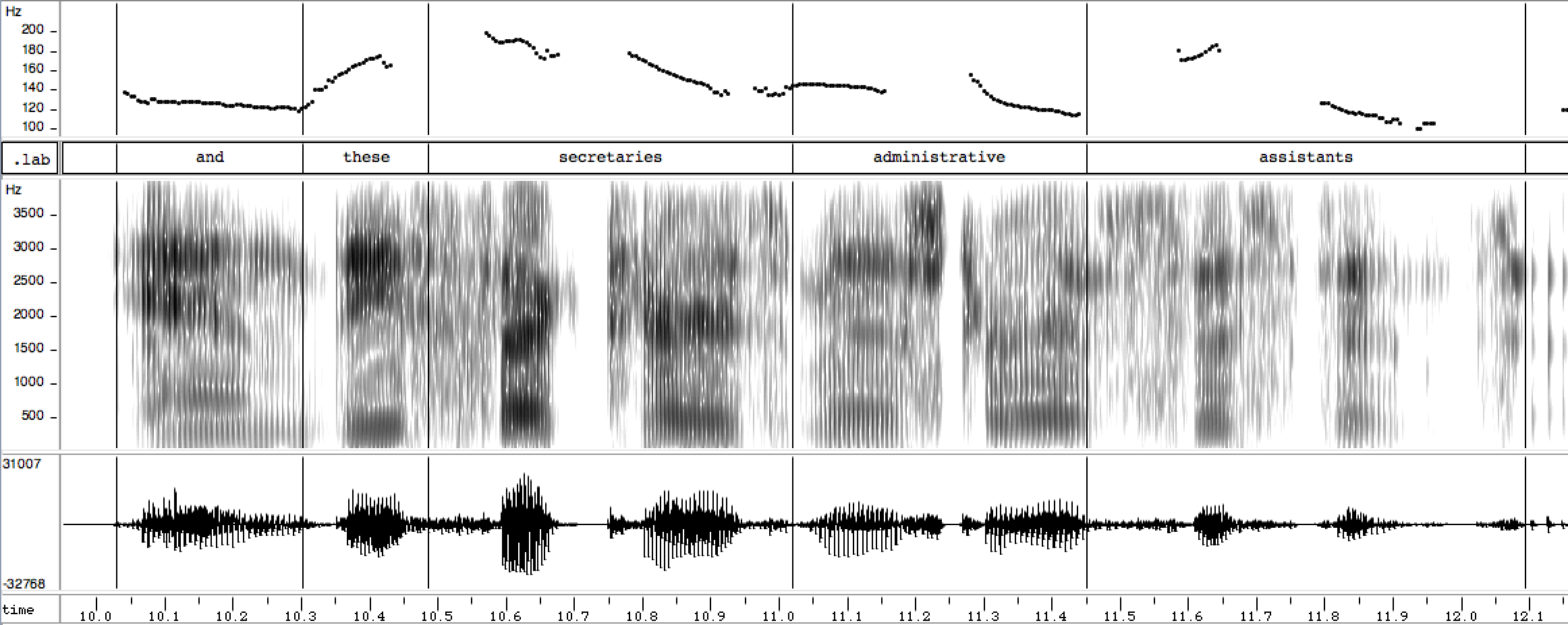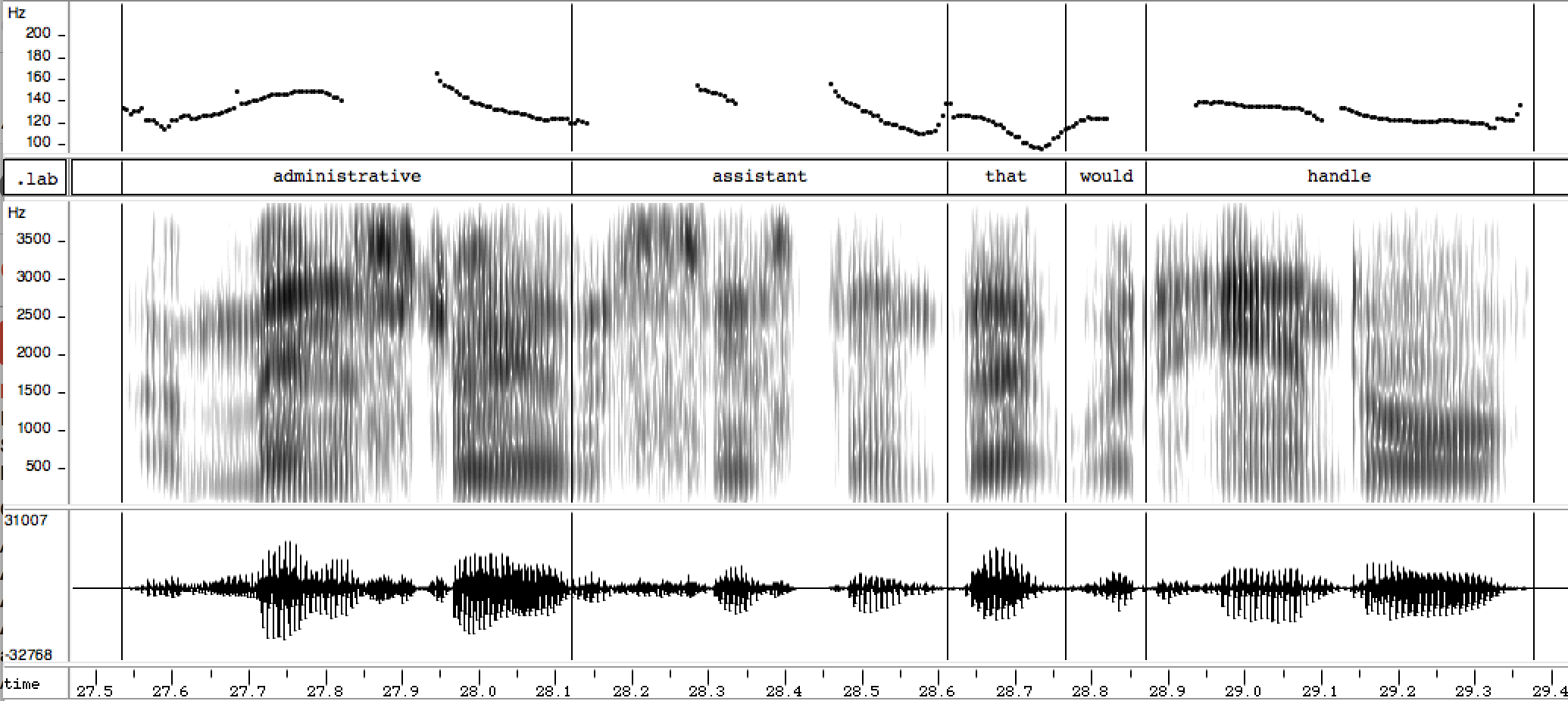Administrative reductions
Language Log 2017-12-10
A couple of days ago, I heard an interesting talk by Juliet Stanton, who proposed that variation in stress on the -at- in (English) words in -ative depends in a gradient way on the total duration of stressless material between -at- and the word's earlier main stress. Thus -at- stressing should become more frequent through a series like palliative, speculative, investigative, legislative.
It occurred to me to wonder whether there might be an effect in the other direction as well. That is, in a word like administrative (where dictionaries and my intuition agree that /ədˈmɪnᵻstrətɪv/ and /ədˈmɪnəˌstreɪdɪv/ are both possible), perhaps the phonetic duration of the intervening sequence would vary according to Stanton's principle.
I chose administrative for a test because a quick check of the LDC's published collection of conversational telephone speech turned up more than 70 instances of that word. But the OED turns out to be right that the version with stressed -at- predominates in the U.S. — 70 out of 73 instances in this set. And there were some other kinds of pronunciation variation that make my idea hard to test in any case.
However, those reductions themselves are worth a look.
One common issue is that the intervocalic /n/ in administrative often loses its closure, leaving only a single phonetic syllable with a nasalized vowel [mɪ̃] as the phonetic residue of the two syllables for which the OED gives the phonemic transcription /mɪnə/. An example:
Your browser does not support the audio element.
The phonemic restoration effect tends to make us native speakers believe that we hear the full form, so here's just the audio corresponding to the nominally 2.5-syllable sequence /mɪnəs/:
Your browser does not support the audio element.
And the waveform and spectrogram:
There are other (and more extreme) forms of reduction as well, especially in the case of frequency and/or recent words and phrases. For example, consider this passage:
Your browser does not support the audio element.
right well see we have di[fferent]- we have marketing people and then we have uh financial planners and uh then we have uh staff secretaries and administrative assistants and these secretaries and administrative assistants um you know th[at]- if we don't have their cooperation and they're not participating in the profit of the company they- they can get very dissatisfied very quickly and so uh we're thinking about paying them ((just)) a percentage on salary, paying them a percentage on the business they handle so ((a)) administrative assistant that would handle two million dollars worth of business is a lot more valuable than a person that handles a hundred thousand dollars worth of business
Here's the first instance of administrative assistant:
Your browser does not support the audio element.
And just the audio for administrative, which is pretty much what the OED says Americans should pronounce it (though note that the second syllable of secretaries is basically just [kə], and the first syllable of assistants is elided):
Your browser does not support the audio element.
Here's the second occurrent of administrative assistants in context:
Your browser does not support the audio element.
and these secretaries and administrative assistants
This time, the second syllable of secretaries, the first and final syllables of administrative, and the first syllable of assistants are all elided, and now administrative become just [ˈmɪ̃.strɪv]
Your browser does not support the audio element.
Here's the third occurrence in context:
Your browser does not support the audio element.
an administrative assistant that would handle
It's hard to know how to parse the initial unstressed syllable, but if we decide that it's a definite article, then we've got something like [ˈmɪ.nɪˌstre.ɪv] as the pronunciation of administrative in this case:
Your browser does not support the audio element.
If we could see what the tongue is doing, the difference between presence and absence of lenited /n/ and /t/ in administrative would presumably be a gradient rather than a categorical one — but all of this is a nice illustration of the phonetic reduction processes that lead to restructuring of the phonology and the lexicon across a few hundred years of language change.



